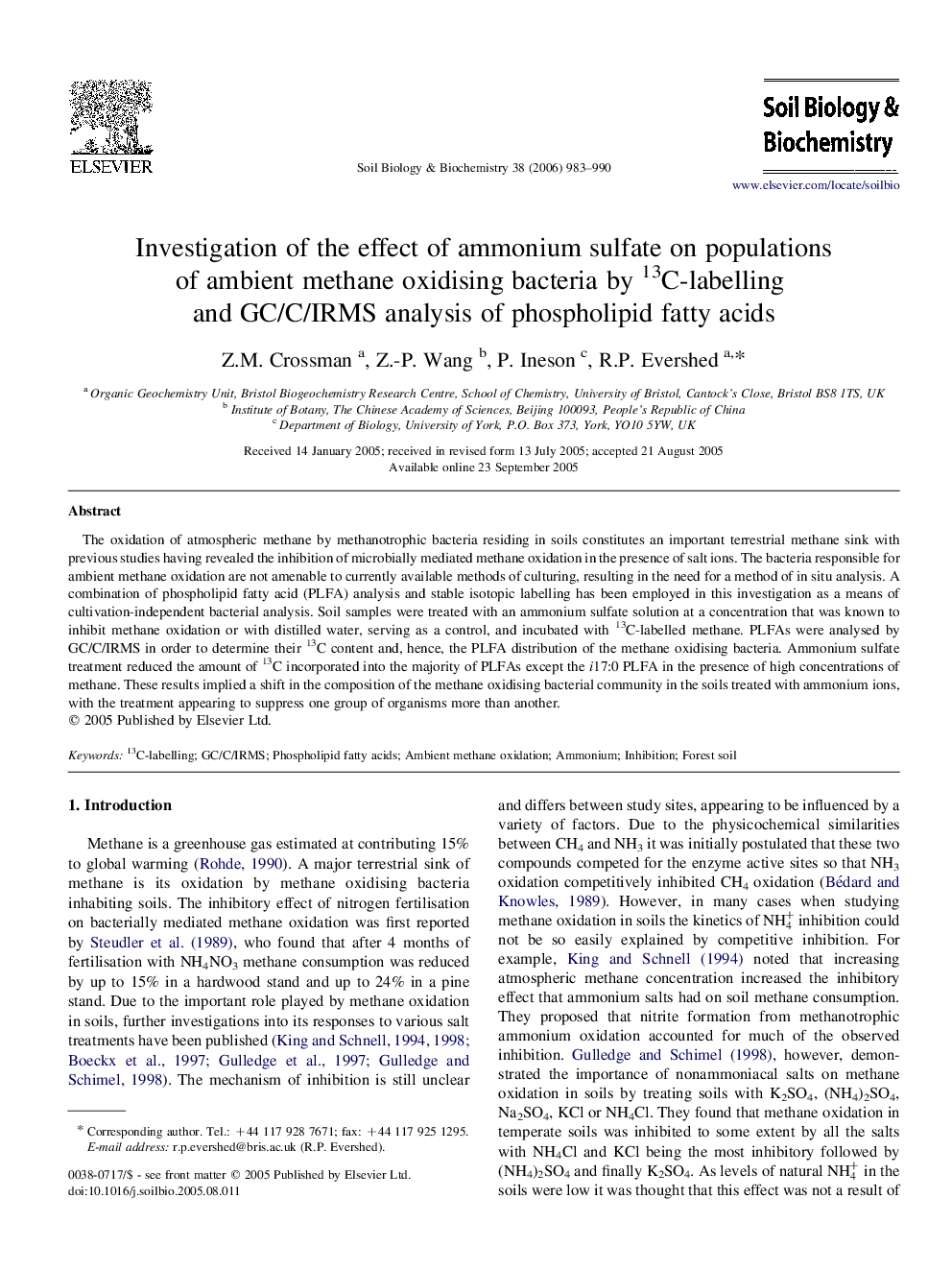| Article ID | Journal | Published Year | Pages | File Type |
|---|---|---|---|---|
| 2026328 | Soil Biology and Biochemistry | 2006 | 8 Pages |
The oxidation of atmospheric methane by methanotrophic bacteria residing in soils constitutes an important terrestrial methane sink with previous studies having revealed the inhibition of microbially mediated methane oxidation in the presence of salt ions. The bacteria responsible for ambient methane oxidation are not amenable to currently available methods of culturing, resulting in the need for a method of in situ analysis. A combination of phospholipid fatty acid (PLFA) analysis and stable isotopic labelling has been employed in this investigation as a means of cultivation-independent bacterial analysis. Soil samples were treated with an ammonium sulfate solution at a concentration that was known to inhibit methane oxidation or with distilled water, serving as a control, and incubated with 13C-labelled methane. PLFAs were analysed by GC/C/IRMS in order to determine their 13C content and, hence, the PLFA distribution of the methane oxidising bacteria. Ammonium sulfate treatment reduced the amount of 13C incorporated into the majority of PLFAs except the i17:0 PLFA in the presence of high concentrations of methane. These results implied a shift in the composition of the methane oxidising bacterial community in the soils treated with ammonium ions, with the treatment appearing to suppress one group of organisms more than another.
